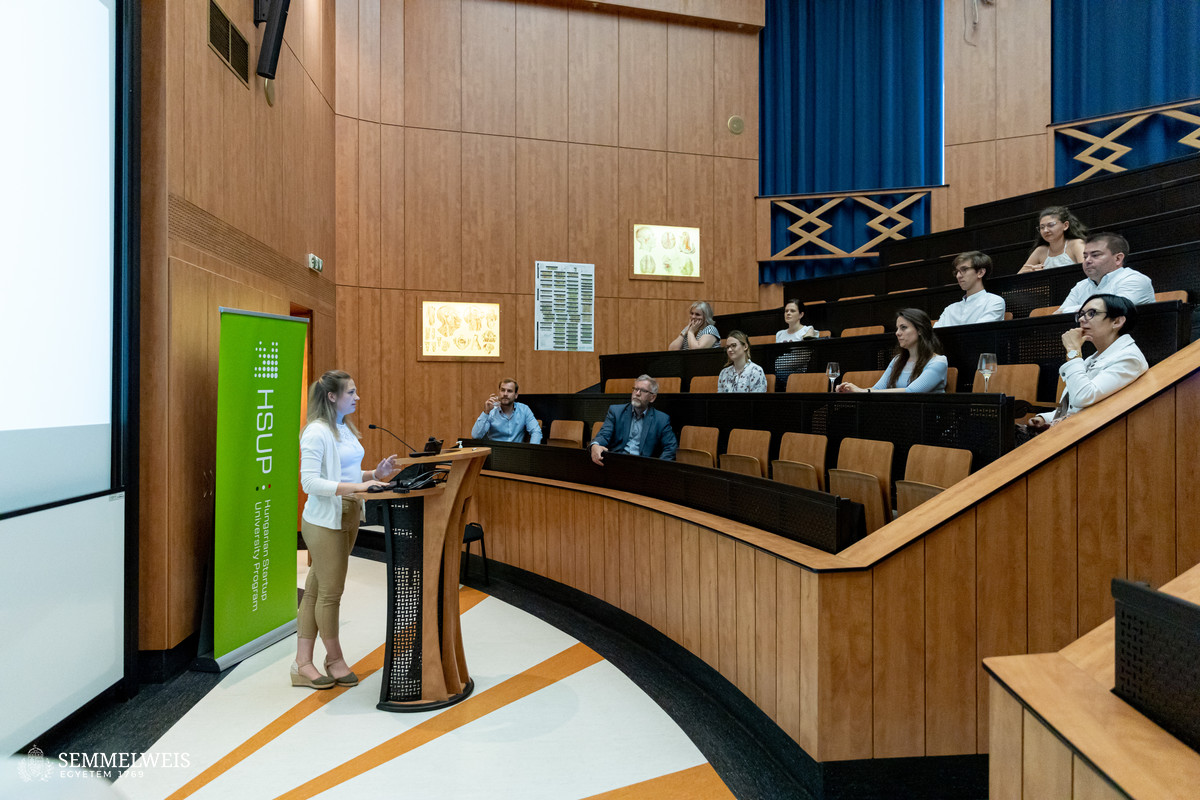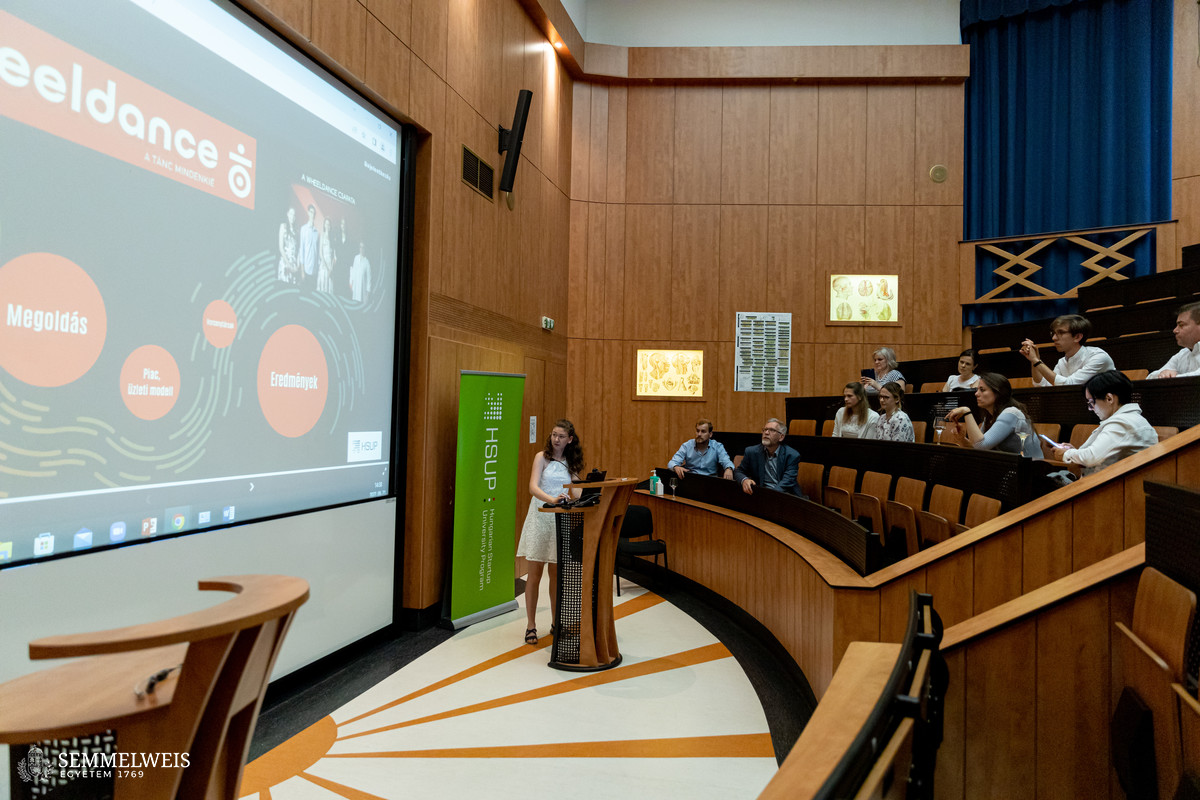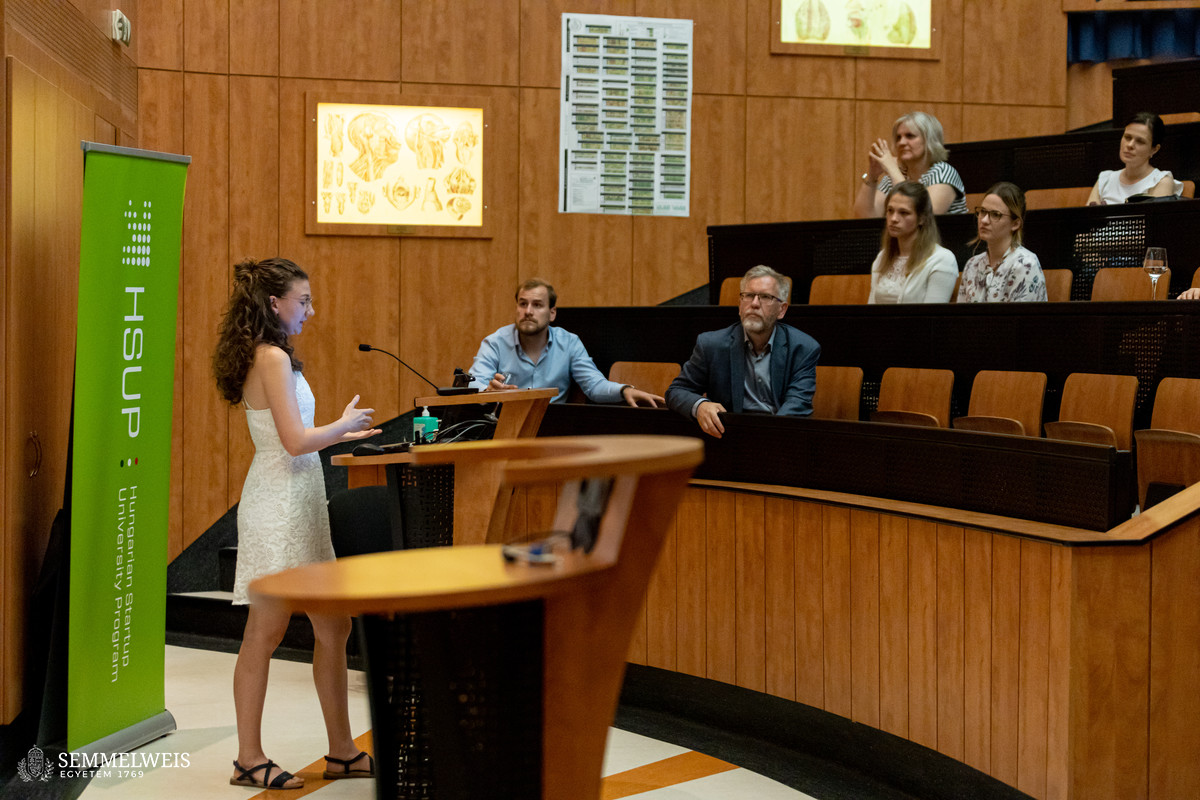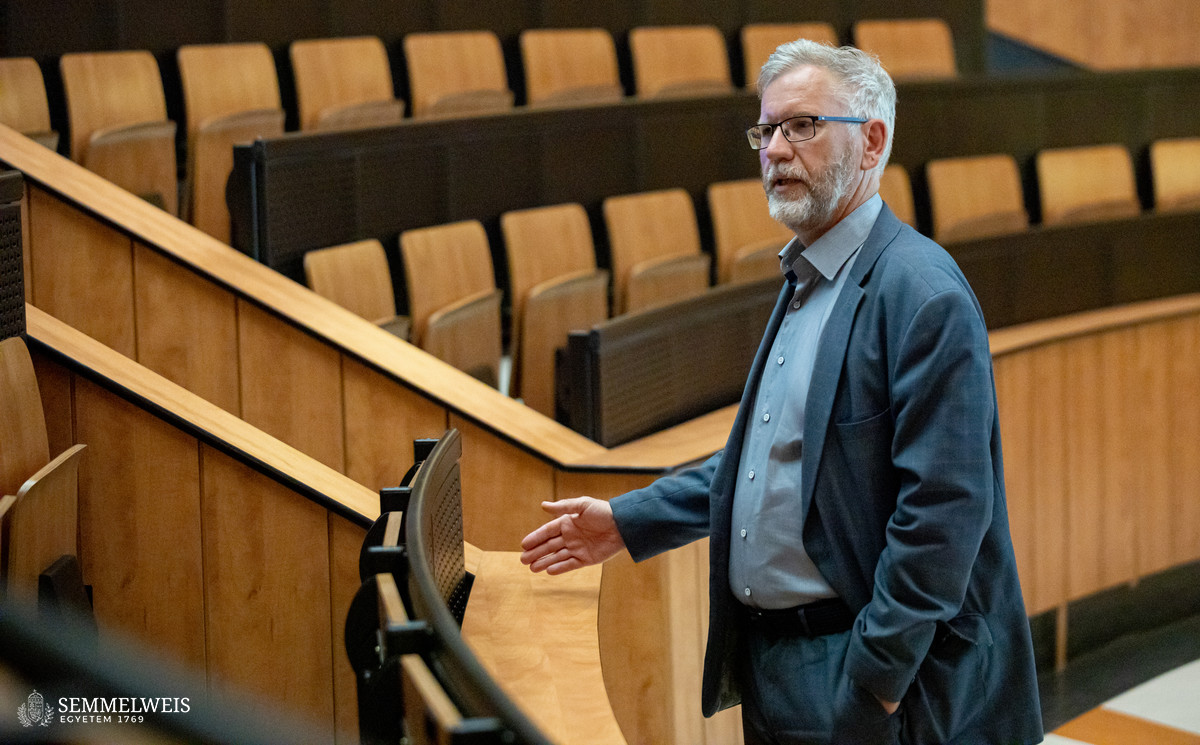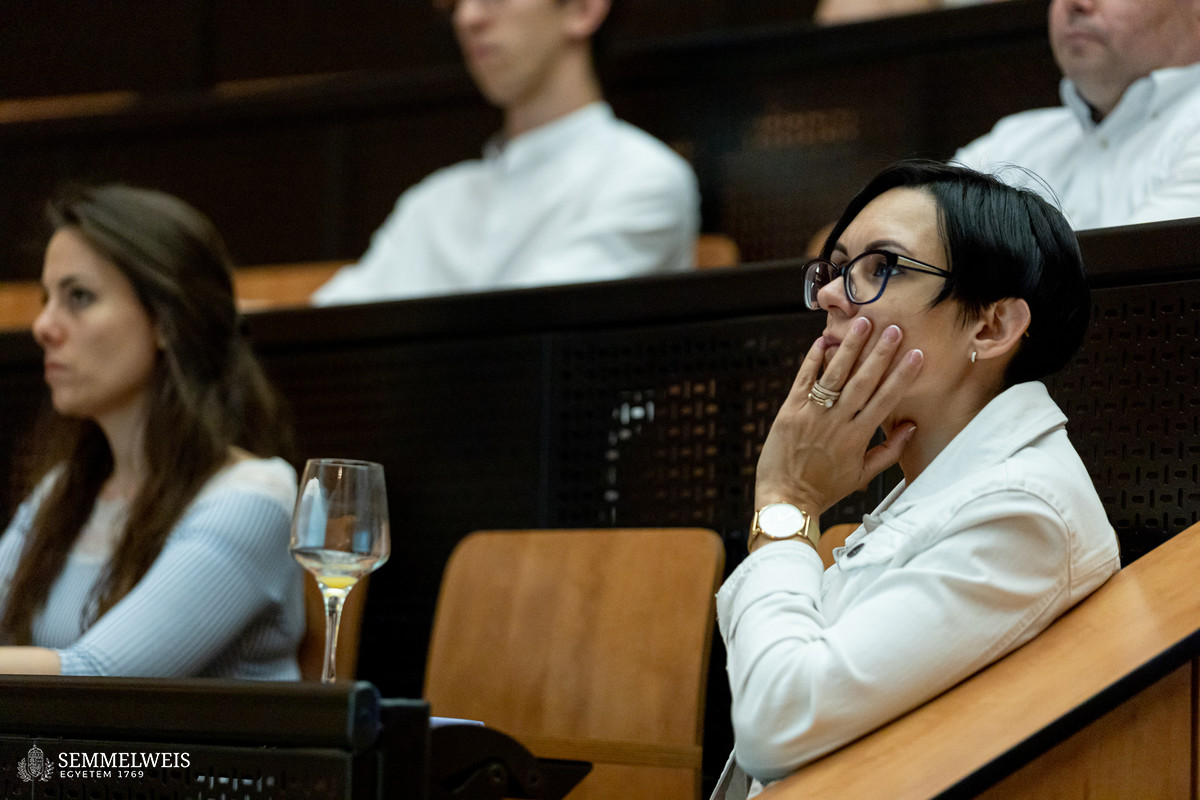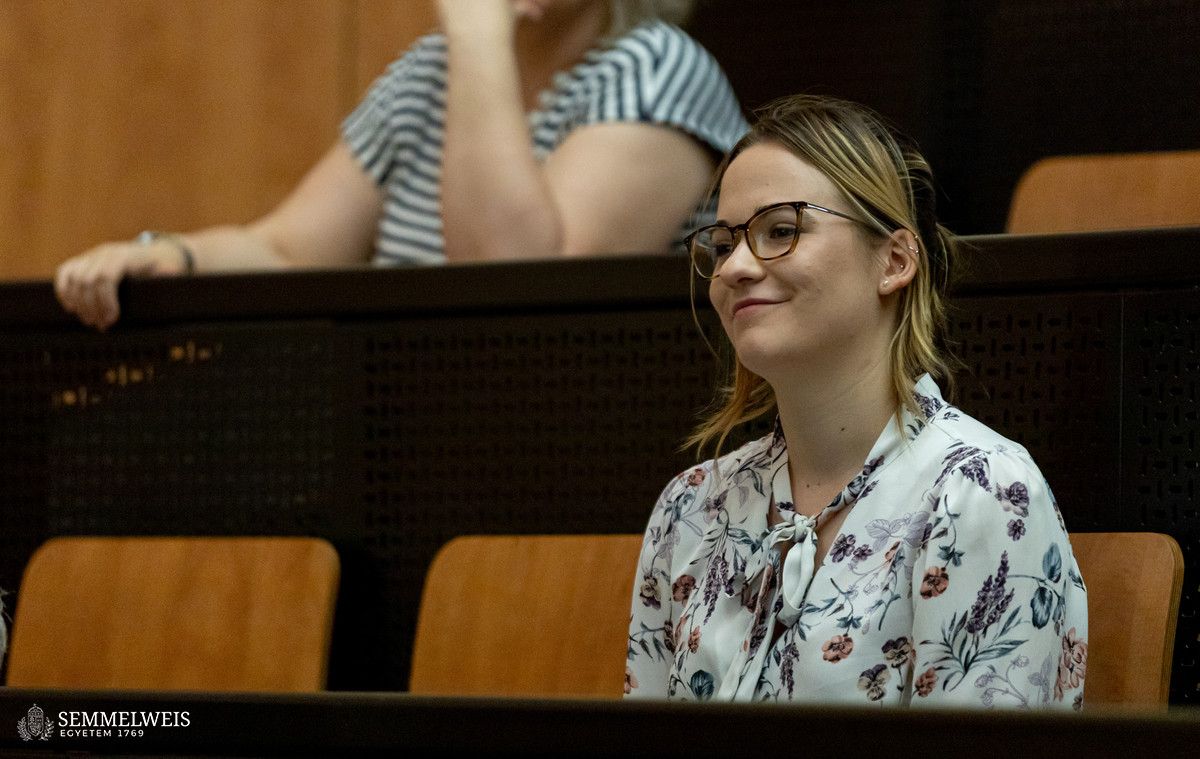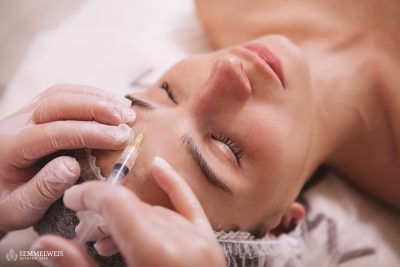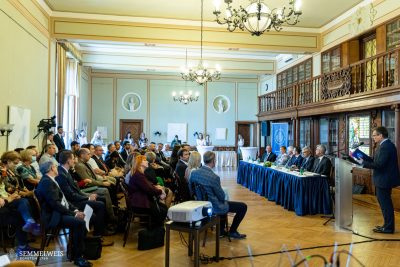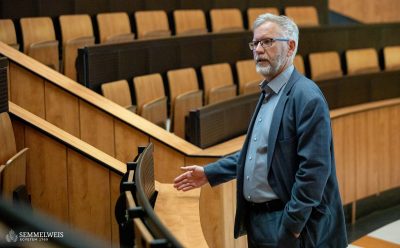 The Hungarian Startup University (HSUP) is Hungary’s first nationally unified e-learning startup programme at the higher education level. It was launched two years ago at the initiative of the National Research, Development and Innovation Office (NKFIH), and since then more and more Hungarian higher education institutions have joined it, including Semmelweis University, said Dr. Gyula Péter Szigeti. The director of the Innovation Office added that nearly a hundred students have taken up the optional course, which also allows them to learn about start-ups and the development of innovative ideas. The first semester is mainly about shaping students’ attitudes, building interest, motivation, introducing the sector and transferring basic knowledge. Finally, at the end of the semester each student submits a one-page summary of their idea. The best teams can implement their ideas and will receive a monthly grant of 150,000 HUF each to continue developing their innovation,” said the director. At the Semmelweis Science and Business Salon in June, four winning teams from Semmelweis University presented their ideas.
The Hungarian Startup University (HSUP) is Hungary’s first nationally unified e-learning startup programme at the higher education level. It was launched two years ago at the initiative of the National Research, Development and Innovation Office (NKFIH), and since then more and more Hungarian higher education institutions have joined it, including Semmelweis University, said Dr. Gyula Péter Szigeti. The director of the Innovation Office added that nearly a hundred students have taken up the optional course, which also allows them to learn about start-ups and the development of innovative ideas. The first semester is mainly about shaping students’ attitudes, building interest, motivation, introducing the sector and transferring basic knowledge. Finally, at the end of the semester each student submits a one-page summary of their idea. The best teams can implement their ideas and will receive a monthly grant of 150,000 HUF each to continue developing their innovation,” said the director. At the Semmelweis Science and Business Salon in June, four winning teams from Semmelweis University presented their ideas.
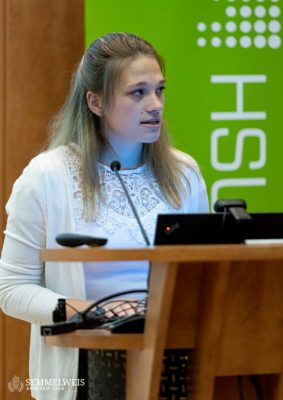 Marianna Matányi, a third-year medical student and her team, Dimedser, won the competition with their idea of a smart medication dispenser, which allows the patient’s condition to be monitored, so the therapy can be changed at any time from home using a phone app. “While caring for my grandmother, I saw how much time it takes just to schedule the right medication; that’s where the idea came from, I wanted to make the process easier,” recalled the student. The team of five includes Kata Hernádi, mechatronics engineer, the hardware developer of the project, Klára Lipták-Fehér, who is responsible for branding and website development, Flóra Tóth for marketing and market research, and from September, the team will be joined by Szilveszter Bárány, a programmer who will develop the application itself. Marianna Matányi, the project’s creator said that she and her mentor, Dr. Gyula Péter Szigeti are now working to transfer their idea to the market as soon as possible.
Marianna Matányi, a third-year medical student and her team, Dimedser, won the competition with their idea of a smart medication dispenser, which allows the patient’s condition to be monitored, so the therapy can be changed at any time from home using a phone app. “While caring for my grandmother, I saw how much time it takes just to schedule the right medication; that’s where the idea came from, I wanted to make the process easier,” recalled the student. The team of five includes Kata Hernádi, mechatronics engineer, the hardware developer of the project, Klára Lipták-Fehér, who is responsible for branding and website development, Flóra Tóth for marketing and market research, and from September, the team will be joined by Szilveszter Bárány, a programmer who will develop the application itself. Marianna Matányi, the project’s creator said that she and her mentor, Dr. Gyula Péter Szigeti are now working to transfer their idea to the market as soon as possible.
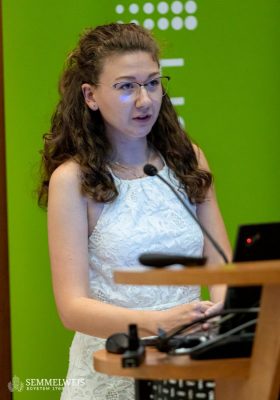 Dr. Margit Dalos, the mastermind behind the WheelDance team wanted to introduce wheelchair users to the joy of dance. As a recent medical student, she wrote her thesis on “Music Therapy in Rehabilitation Medicine”, which made her realize that the arts have a demonstrably beneficial effect on our health. “Dance and music have been a part of my life since I was a child, and during COVID I experienced the value of arts and sports that can be done at home, within the four walls myself,” she said. “I’ve always been interested in rehabilitation, and it’s where I learned about the problems of people in wheelchairs; I wanted to share the benefits of music and dance with them,” she said. There are wheelchair dance groups in Hungary, but not everyone has access to them, which is where the idea came from, to make them available on online platforms. They created a YouTube channel, with the help of cameraman Máté Tóth-Heyn they shot a dance video, and designed the movements with a graphic artist. These graphics appear in the corner of the screen as well, so that the choreography is easier to learn,” she explained. Future plans include an app and, in the future, a video game.
Dr. Margit Dalos, the mastermind behind the WheelDance team wanted to introduce wheelchair users to the joy of dance. As a recent medical student, she wrote her thesis on “Music Therapy in Rehabilitation Medicine”, which made her realize that the arts have a demonstrably beneficial effect on our health. “Dance and music have been a part of my life since I was a child, and during COVID I experienced the value of arts and sports that can be done at home, within the four walls myself,” she said. “I’ve always been interested in rehabilitation, and it’s where I learned about the problems of people in wheelchairs; I wanted to share the benefits of music and dance with them,” she said. There are wheelchair dance groups in Hungary, but not everyone has access to them, which is where the idea came from, to make them available on online platforms. They created a YouTube channel, with the help of cameraman Máté Tóth-Heyn they shot a dance video, and designed the movements with a graphic artist. These graphics appear in the corner of the screen as well, so that the choreography is easier to learn,” she explained. Future plans include an app and, in the future, a video game.
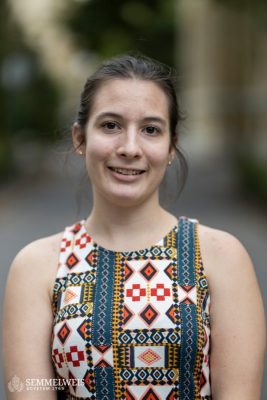 The Life Hacks team led by Helga Hampó designed an educational card game with health content. The preventive, educational game introduces children to important health topics in a fun way. The action-packed card game features a variety of character cards, as well as basic diseases and the cards that ’cure’ them, with useful information about each disease at the bottom of the cards. With the app that comes with the game, additional video content and preventive options will be available via QR codes,” said Helga Hampó. The first-year dental student also worked as an animator, where she saw that children were interested in health care, hence the idea for the card game. A version for university and high school students is also being developed, and general teaching aids for educational use are also planned. Other members of the team are Kristóf Hetyei, a website and application developer, Edina Horváth, a graphic and image designer, Emilia Szalóki, a physiotherapist and developer of the game’s mechanism, and Sára Vémann, a finance and marketing expert.
The Life Hacks team led by Helga Hampó designed an educational card game with health content. The preventive, educational game introduces children to important health topics in a fun way. The action-packed card game features a variety of character cards, as well as basic diseases and the cards that ’cure’ them, with useful information about each disease at the bottom of the cards. With the app that comes with the game, additional video content and preventive options will be available via QR codes,” said Helga Hampó. The first-year dental student also worked as an animator, where she saw that children were interested in health care, hence the idea for the card game. A version for university and high school students is also being developed, and general teaching aids for educational use are also planned. Other members of the team are Kristóf Hetyei, a website and application developer, Edina Horváth, a graphic and image designer, Emilia Szalóki, a physiotherapist and developer of the game’s mechanism, and Sára Vémann, a finance and marketing expert.
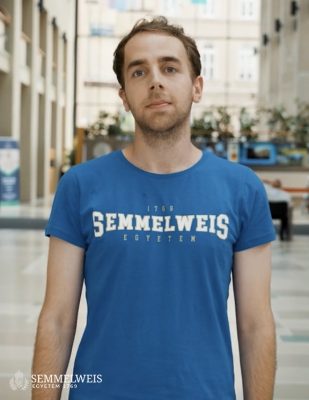 Kevin Sághi, a sixth-year medical student and his team, Resiruin have dreamed up an educational platform where students, mainly from the Faculty of General Medicine, can practice microbiology and pharmacology in their first three years and test their knowledge with various tests. Senior students can train in infection theory and treatment through case-based, concrete examples, and the website would accompany them all the way to their final year,” said Kevin Sághi, the project’s creator. He added that the different contents, videos for the educational platform were compiled based on European guidelines. A survey showed that infectious diseases and infection management are the most difficult subjects for students, which is why the website focuses on these topics. Another section of the website, targeting doctors, would be used to create training modules that can be completed for credit, with the help of the Hungarian Society of Infectology and Clinical Microbiology.
Kevin Sághi, a sixth-year medical student and his team, Resiruin have dreamed up an educational platform where students, mainly from the Faculty of General Medicine, can practice microbiology and pharmacology in their first three years and test their knowledge with various tests. Senior students can train in infection theory and treatment through case-based, concrete examples, and the website would accompany them all the way to their final year,” said Kevin Sághi, the project’s creator. He added that the different contents, videos for the educational platform were compiled based on European guidelines. A survey showed that infectious diseases and infection management are the most difficult subjects for students, which is why the website focuses on these topics. Another section of the website, targeting doctors, would be used to create training modules that can be completed for credit, with the help of the Hungarian Society of Infectology and Clinical Microbiology.
Bernadett Bódi
Translation: Viktória Kiss
Photo: Attila Kovács, Bálint Barta – Semmelweis University
